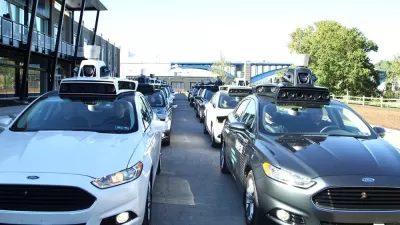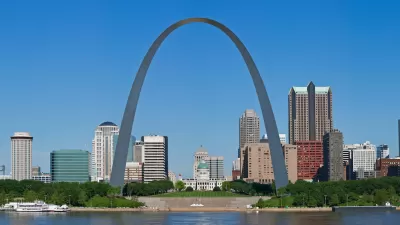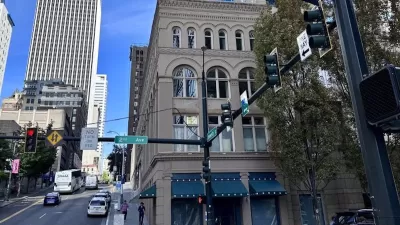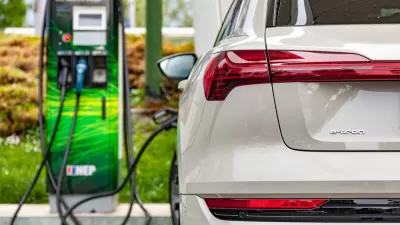In the absence of more enlightened policies, technological change is as likely to increase pollution as to decrease pollution.

To receive the latest news in road lobby advocacy, I get Robert Poole’s "Surface Transportation Innovations" newsletter, which consistently advocates for more roads and less transit. In the most recent edition, he writes: "if zero-emission and increasingly automated vehicles actually are our future, then the current California focus on reducing VMT … is not required." This claim illustrates a common assumption: that we really don't need to do anything at all to reduce vehicle miles traveled, because electric cars will magically save us.
What's wrong with this claim? For one thing, well-intentioned commentators have been making this claim for decades; Poole himself cites a 1998 article. If people keep claiming that clean energy is right around the corner, and clean energy never comes, at what point do we give up on the dream?
More broadly, the "clean car" dream is based on the assumption that technological change is inherently pro-environmental. But in recent years, human ingenuity has been devoted to finding new ways to make our cities more polluted and dangerous than ever.
For example, the rise of Uber, Lyft, and similar companies has made taxicab service cheaper. Of course, this means more people taking cabs and fewer people taking transit; at least one study suggests that the rise of Uber etc correlates with declining transit ridership in big cities.
Meanwhile, car companies have been persuading Americans to buy gigantic trucks, which they call sport utility vehicles (SUVs)—rather oddly, since I don't know of any sports that you can play while driving one. SUVs typically have lower fuel economy than other cars; thus, this so-called advance has actually led to more pollution rather than less pollution. To make matters worse, SUVs have been literally wiping pedestrians off the roads. As SUVs have become more popular, the number of pedestrian deaths involving them has increased by 50 percent since 2013. Because these vehicles are taller, they tend to strike pedestrians in the head and the chest rather than in the legs, thus increasing the chances that a collision will lead to death.
Even if electric cars come, they may not be as good for air quality as we might like to think. Although electric cars do not directly create emissions, they are only as green as the electricity they run on—which means that where the power supply is highly dependent on coal and other fossil fuels, they still create significant greenhouse gas emissions.
I don't know whether electric cars will ever become widespread. But I do know that until they do, other technological change may do more harm than good.

Alabama: Trump Terminates Settlements for Black Communities Harmed By Raw Sewage
Trump deemed the landmark civil rights agreement “illegal DEI and environmental justice policy.”

Study: Maui’s Plan to Convert Vacation Rentals to Long-Term Housing Could Cause Nearly $1 Billion Economic Loss
The plan would reduce visitor accommodation by 25% resulting in 1,900 jobs lost.

Planetizen Federal Action Tracker
A weekly monitor of how Trump’s orders and actions are impacting planners and planning in America.

Wind Energy on the Rise Despite Federal Policy Reversal
The Trump administration is revoking federal support for renewable energy, but demand for new projects continues unabated.

Passengers Flock to Caltrain After Electrification
The new electric trains are running faster and more reliably, leading to strong ridership growth on the Bay Area rail system.

Texas Churches Rally Behind ‘Yes in God’s Back Yard’ Legislation
Religious leaders want the state to reduce zoning regulations to streamline leasing church-owned land to housing developers.
Urban Design for Planners 1: Software Tools
This six-course series explores essential urban design concepts using open source software and equips planners with the tools they need to participate fully in the urban design process.
Planning for Universal Design
Learn the tools for implementing Universal Design in planning regulations.
Caltrans
Smith Gee Studio
Institute for Housing and Urban Development Studies (IHS)
City of Grandview
Harvard GSD Executive Education
Toledo-Lucas County Plan Commissions
Salt Lake City
NYU Wagner Graduate School of Public Service






























